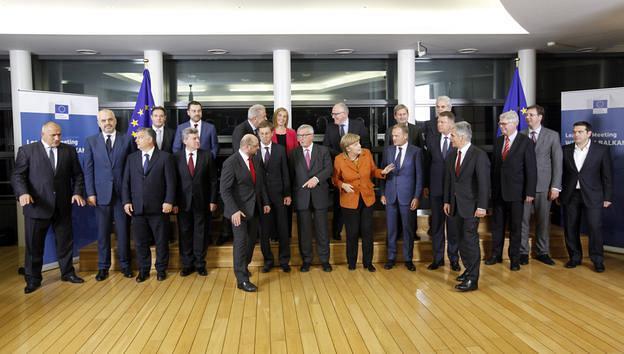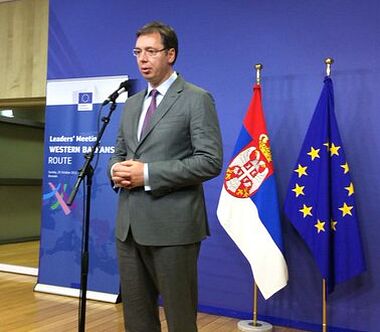- Serbia
Get to know Serbia
- Citizens
Culture and science
Health services
Pension and disability insurance
- Business
Employment
Economy
- Media
- Government
- Contact
Keep in touch
Contact form
Back
Keepin touch
Whether you have a question, comment, suggestion or any problem in the purview of the government, send us your message and we will try to respond as soon as possible. If your problem is not in our purview, we will forward your message to the relevant institution.
Q:
A:
Plan of action for dealing with refugee crisis agreed on
Belgrade/Brussels,
26 October 2015
The European Union and the leaders of the Balkan countries agreed last night in Brussels on a 17-point plan of action for solving common tasks relating to a large influx of refugees across the Balkan Peninsula, the European Commission said.
At the Brussels summit it was decided that the reception capacity in Greece and the Western Balkans be increased to 100,000 places, of which 50,000 in Greece, and members of the EU Border Agency – Frontex will monitor border crossings and support registration and fingerprinting at the Croatian-Serbian border crossing points.
Reception capacity in Greece will increase to 30,000 places by the end of this year, with the UNHCR to help provide at least 20,000 more places in Greece.
In addition, the aim will be to create additional capacity for the reception of 50,000 people in the north of Greece, which means acceptance of 100,000 people along the Western Balkan routes and Greece.
Frontex will reinforce its support at the border between Bulgaria and Turkey, while Greece and Macedonia and Albania will strengthen the management of the external land border, with Frontex to support registration in Greece.
One of the measures is discouraging the movement of refugees or migrants to the border of another country of the region without informing neighbouring countries.
In Slovenia 400 police officers and essential equipment will be deployed within a week, through bilateral support.
Practical cooperation on readmission with third countries and intensifying cooperation in particular with Afghanistan, Bangladesh and Pakistan is also planned.
The plan envisages upscaling the Poseidon Sea Joint Operation in Greece and the presence of Frontex in the Aegean Sea.
It was also agreed to exchange information on the size of movement and flows of refugees. Frontex as well as the EU's asylum office ESAO will put this exchange of information in place.
The plan is to contact financial institutions including the European Investment Bank, the European Bank for Reconstruction and Development to secure finances for accommodation of refugees.
Police and judicial cooperation actions will be stepped up against migrant smuggling, engaging Europol and Interpol in Western Balkan route operations.
Reception capacity in Greece will increase to 30,000 places by the end of this year, with the UNHCR to help provide at least 20,000 more places in Greece.
In addition, the aim will be to create additional capacity for the reception of 50,000 people in the north of Greece, which means acceptance of 100,000 people along the Western Balkan routes and Greece.
Frontex will reinforce its support at the border between Bulgaria and Turkey, while Greece and Macedonia and Albania will strengthen the management of the external land border, with Frontex to support registration in Greece.
One of the measures is discouraging the movement of refugees or migrants to the border of another country of the region without informing neighbouring countries.
In Slovenia 400 police officers and essential equipment will be deployed within a week, through bilateral support.
Practical cooperation on readmission with third countries and intensifying cooperation in particular with Afghanistan, Bangladesh and Pakistan is also planned.
The plan envisages upscaling the Poseidon Sea Joint Operation in Greece and the presence of Frontex in the Aegean Sea.
It was also agreed to exchange information on the size of movement and flows of refugees. Frontex as well as the EU's asylum office ESAO will put this exchange of information in place.
The plan is to contact financial institutions including the European Investment Bank, the European Bank for Reconstruction and Development to secure finances for accommodation of refugees.
Police and judicial cooperation actions will be stepped up against migrant smuggling, engaging Europol and Interpol in Western Balkan route operations.
Serbian Prime Minister Aleksandar Vucic, who attended the meeting in Brussels, said yesterday, that Serbia deals with the migrants humanely, that it is willing to accept a certain quota of migrants, and that the crisis is too complex that could be quickly solved.
Vucic said that so far the largest number of refugees passed through Serbia and reiterated that Serbia has no intention to raise the fence with Macedonia or any other neighbouring country.
Raising the fence could be effective for one, two or three countries, but it is not a comprehensive solution, the Prime Minister said.
He added that Serbia has not used tear gas or force against migrants, that Serbia treats them well and that the migrants are satisfied.
Vucic said that so far the largest number of refugees passed through Serbia and reiterated that Serbia has no intention to raise the fence with Macedonia or any other neighbouring country.
Raising the fence could be effective for one, two or three countries, but it is not a comprehensive solution, the Prime Minister said.
He added that Serbia has not used tear gas or force against migrants, that Serbia treats them well and that the migrants are satisfied.
-
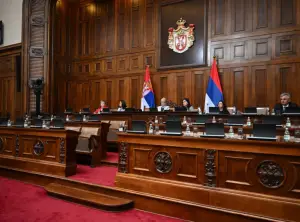 Belgrade, 7 November 2025
Belgrade, 7 November 2025Parliament adopts multiple laws
-
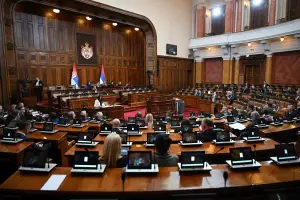 Belgrade, 22 October 2025
Belgrade, 22 October 2025Parliament adopts several laws, ratifies multiple international agreements
-
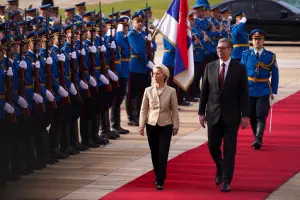 Belgrade, 15 October 2025
Belgrade, 15 October 2025Vučić welcomes Ursula von der Leyen in front of Palace of Serbia
-
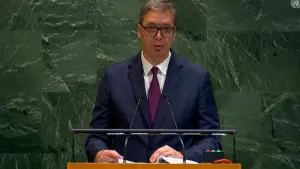 Belgrade/New York, 24 September 2025
Belgrade/New York, 24 September 2025Respect for UN Charter obligation of all countries
-
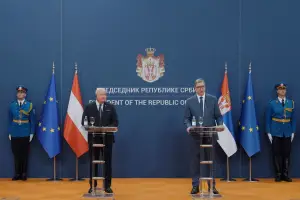 Belgrade, 13 August 2025
Belgrade, 13 August 2025High level of understanding, agreement between Serbia, Austria
-
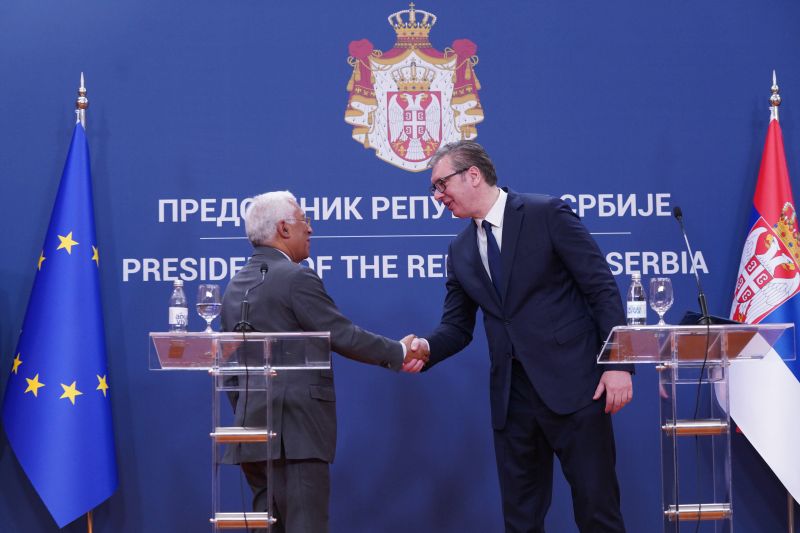 Belgrade, 13 May 2025
Belgrade, 13 May 2025Serbia's sincere, firm commitment to European path, reforms and dialogue
-
 Belgrade, 13 May 2025
Belgrade, 13 May 2025Vučić welcomes European Council President in front of Palace of Serbia
-
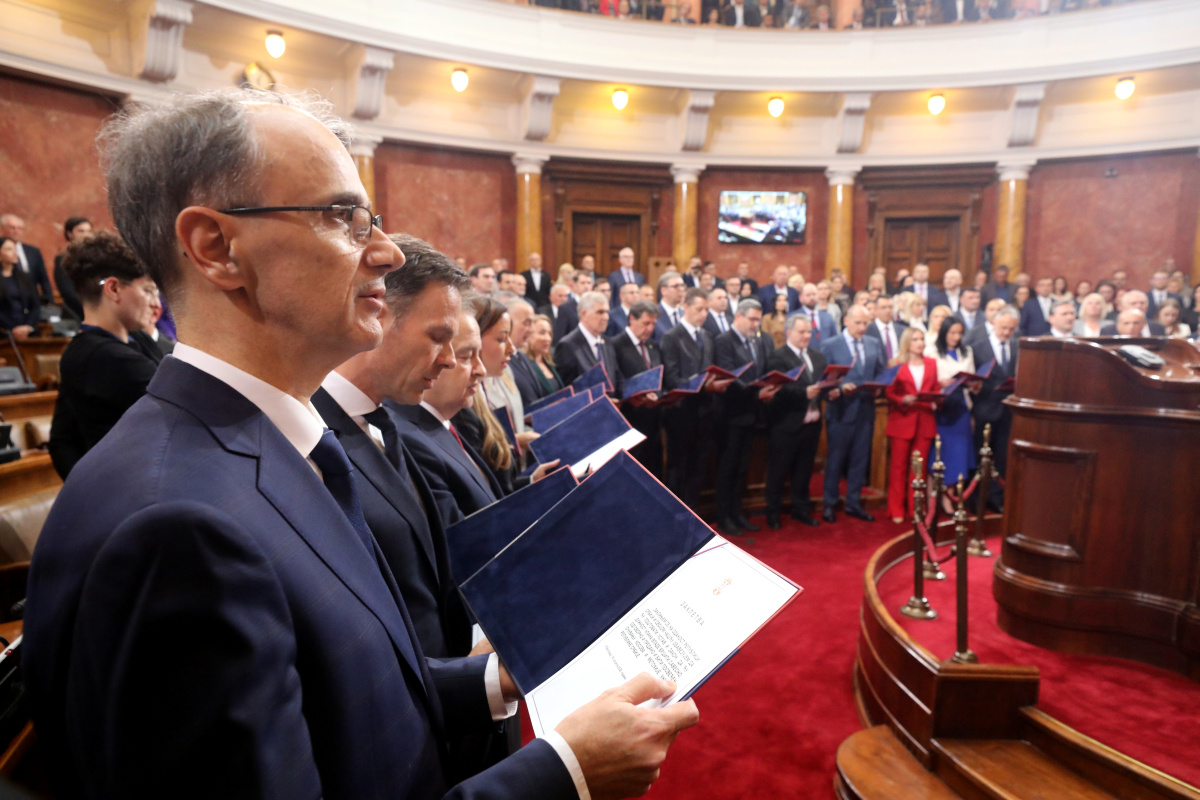 Belgrade, 16 April 2025
Belgrade, 16 April 2025New Serbian government voted in
-
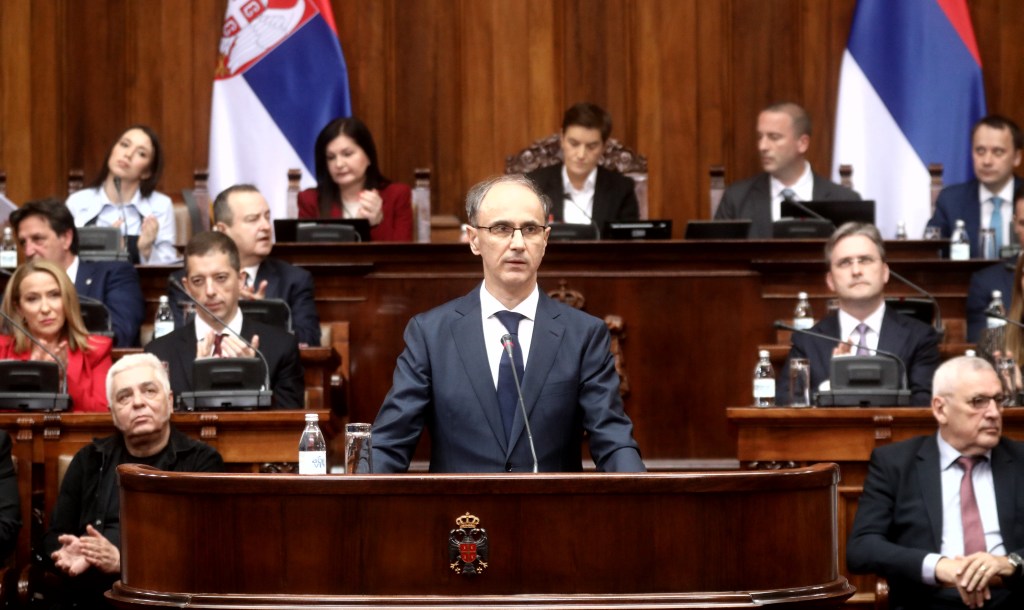 Belgrade, 15 April 2025
Belgrade, 15 April 2025Building unity through dialogue, tolerance, respect for value system
-
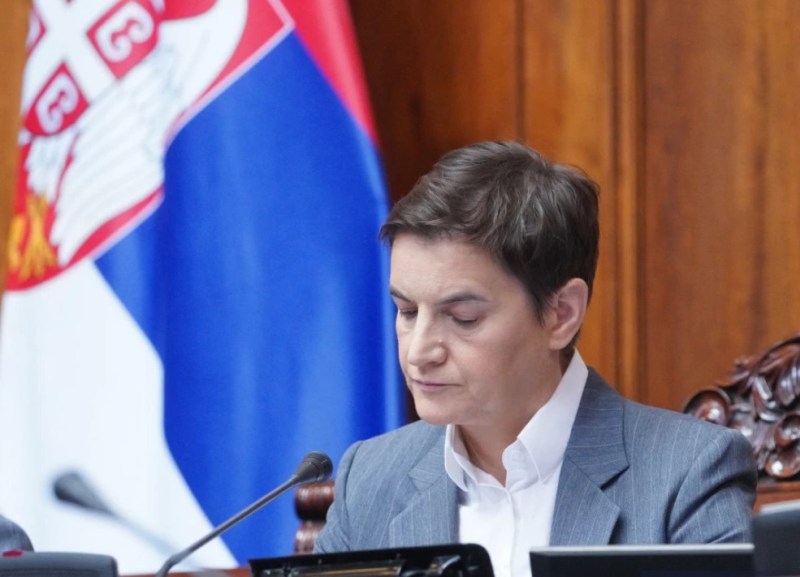 Belgrade, 14 April 2025
Belgrade, 14 April 2025National Assembly speaker convenes session on government election

